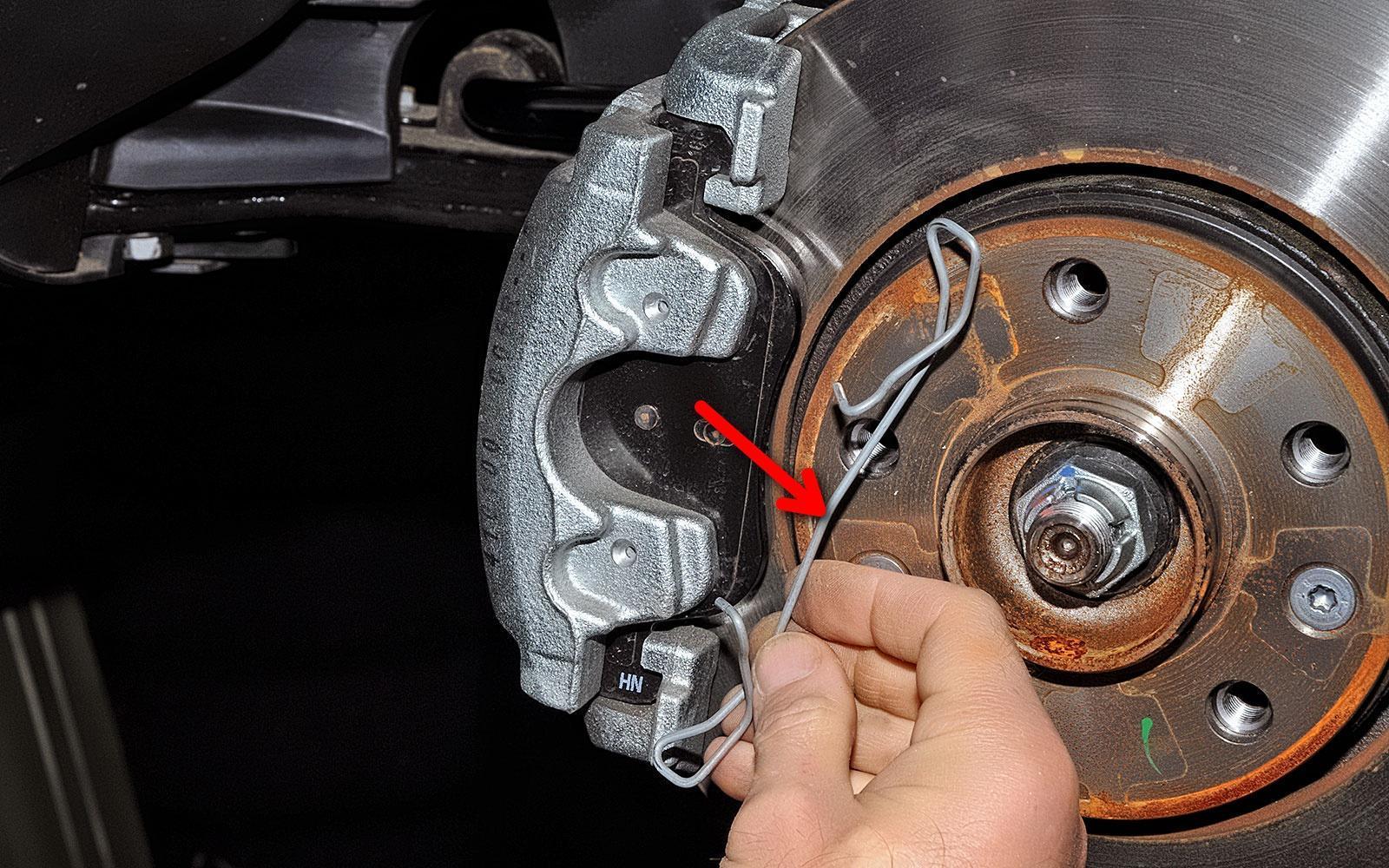
How to eliminate squeaky brake pads?
Why does brake pads squeak?
From a physical point of view, creaking in the brake system most often appears due to high-frequency vibration with a small amplitude of the pads relative to the discs (or less often, the drums). That is, at the micro level, the pad vibrates with a high frequency upon contact with the disc, sliding with a large clamping force along its surface, and transmits a high-frequency impulse to other metal parts. Which leads to the appearance of a creak of various tonality.
In this case, do not panic. If the brakes work effectively, and there is no visual damage to the parts of the system, then this phenomenon is not dangerous. After all, from a technical point of view, the brakes remain fully operational. A creak is a side effect of the system, which only creates an unpleasant sound, but does not indicate the presence of defects affecting the performance.
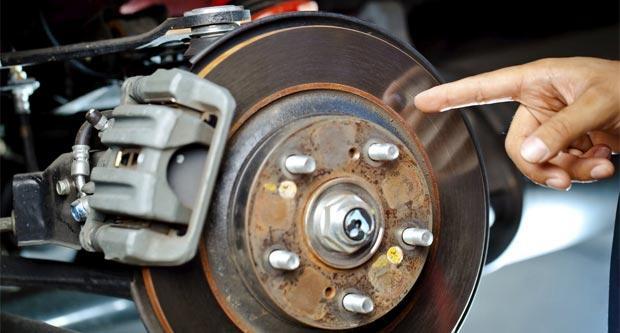

Less commonly, a creaking sound is mechanical in nature. That is, similarly to the process of abrasive wear, the block cuts furrows in the disk or drum. The process is similar to scratching glass with a nail. The destruction of the material causes it to vibrate, which is transmitted in the form of high-frequency waves into the air, which carries the sound wave. Our hearing perceives this high-frequency sound wave as a creak. This usually occurs with low quality cheap brake pads.
If, in parallel with the systematic creaking, obvious grooves, grooves or undulating wear are visible on the disc, this indicates a malfunction of the brake system. And it is better to contact the service station in advance. service for diagnostics.
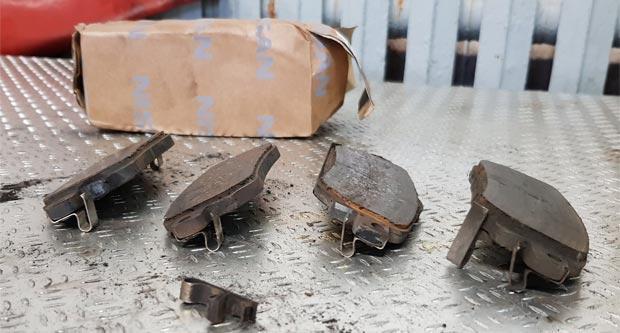

Anti squeak for brake pads
One of the most common, simple and at the same time effective ways to deal with squeaks in the braking system is the use of so-called anti-squeaks - special pastes that dampen high-frequency vibrations of the pads. It usually consists of two components:
- synthetic base capable of withstanding high temperatures without destruction;
- filler.
Often, anti-creak paste is made with the addition of copper or ceramics.
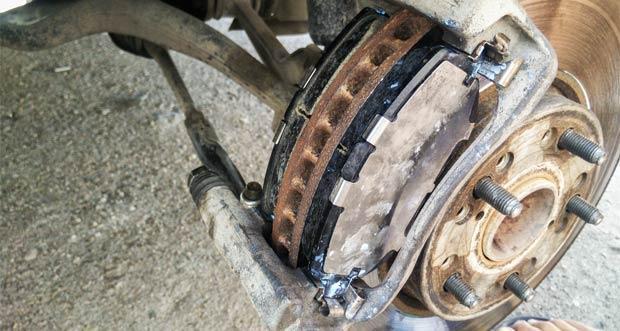

Anti-creak lubricant requires careful and thoughtful use. It can be applied both on the working surface and on the back side of the block. Most lubricants are designed to be applied to the back of a brake pad only. If there is an anti-creak plate, it is additionally applied to the plate on both sides.
The anti-creak works like a viscous damper that prevents the pad from vibrating at a high frequency. The pad seems to get stuck in the grease. And when pressed against the disk during braking, it vibrates much less intensely and does not transmit this vibration to other parts of the system. That is, that threshold of high-frequency micro-movements does not pass when the vibration reaches a level capable of generating sound waves.
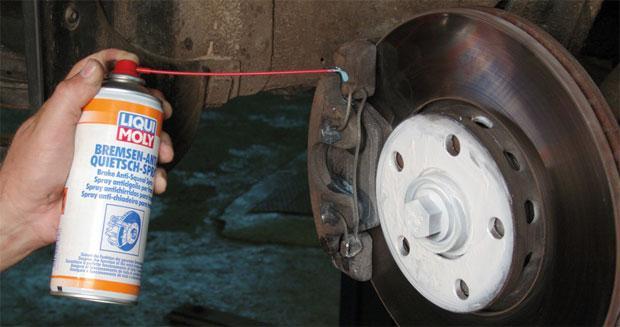

There are several popular anti-creak lubricants on the market, the effectiveness of which has been tested by motorists.
- ATE Plastilube. Sold in a 75 ml tube. This amount is enough for several treatments of all the brake pads of a passenger car. It costs around 300 rubles.
- BG 860 Stop Squel. 30 ml can. The agent is applied to the working surface of the block. It costs about 500 rubles per bottle.
- SOON Anti-Quietsch-Spray. Aerosol can of 400 ml. Designed to be applied to the back side of the pads. The price is about 300 rubles.
- Bardahl Anti Noise Brakes. Means from the known company which is letting out auto chemical goods. It is applied to the back side of the pad and the anti-slip plate, if any. It costs about 800 rubles.
It is difficult to give preference to any one composition. After all, the reasons for the appearance of a creak largely affect the efficiency of work. And in different cases, different means manifest themselves in different ways, and regardless of cost.


Watch this video on YouTube

